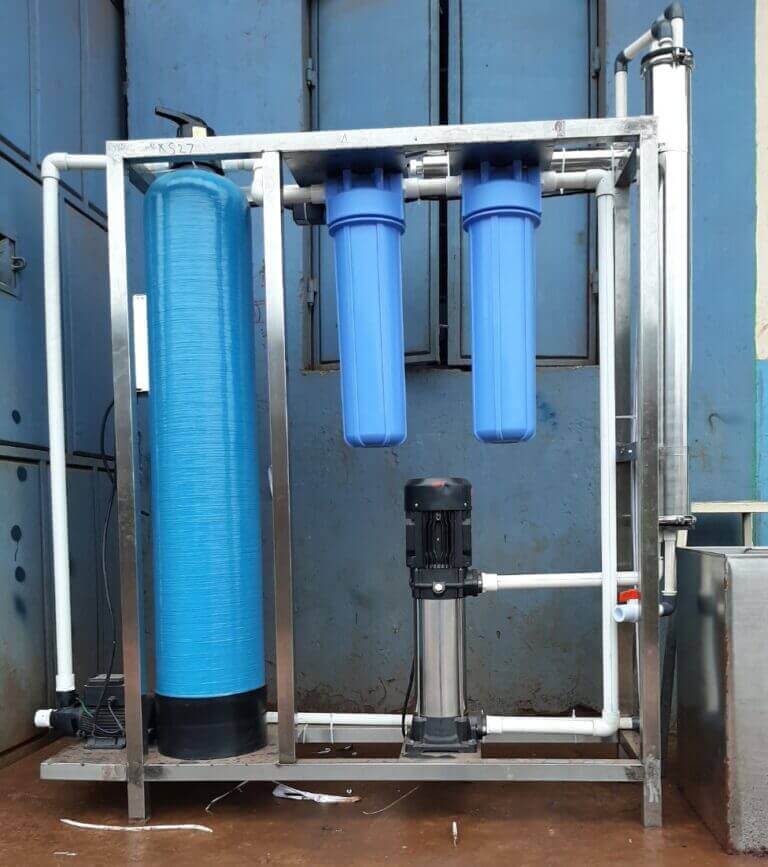Everyone seems to have their own perception involving What is a Whole House Water Filter and How Does It Work?.

Entire home water filters are the ideal option for people that want having a home that provides tidy, drinkable water. Together with supplying high quality drinking water throughout your house, an entire home water filter also provides benefits such as getting rid of contaminations that trigger finding in water that is used to clean meals. Unfiltered water can also create trouble such as rusting plumbing and devices, spoiling clothes that is washed and also discolor sinks or showers. Although entire home water filters are typically utilized in property residences, they can likewise be a reliable choice for apartment or condos or workplaces.
In the beginning, it might seem that whole residence water filters would certainly be extremely costly when contrasted to various other filter choices, but they are really a really affordable alternative for water filtration. The cost series of these water filters is large, starting at 2 hundred bucks and also costing as high as one thousand dollars. The rate of the filters is dependent upon their dimension, material and also life span. This might feel like an incredibly high rate, however when compared to other filter choices, it is actually extremely cost effective due to the quantity of filtering system that it offers.
Entire house water filters cleanse water in the very same fashion that filters, such as kitchen counter or under sink filters, do. The difference is that it needs just one filter, which is connected to the major water source, rather than needing several water filters to be affixed to different gadgets. Similar to the other filters, entire residence water filters purify tap water forcibly it via several various phases of filtration. One of the stages is carbon filtering. Carbon is an effective method of filtering system water due to the fact that it is permeable and has the capability to eliminate tiny and large pollutants. Carbon is essential in removing unstable natural carbon substances, which in many cases can cause major damage to the liver, kidney or central nerve system. Carbon additionally removes harmful compounds such as pesticides, commercial solvents as well as pesticides.
An additional crucial step of the filtration process entails a procedure such as ionization or micron filtration. This step removes hundreds of contaminants found in tap water, and transforms the water to fantastic sampling, healthy and balanced alcohol consumption water. As pointed out previously, the primary benefit of whole home water filters are that they offer filtered water throughout your home with using only one filter.
One more advantage of whole house water filters is the long lifetime that they supply. Most of these filters last in between fifty and also one hundred thousand gallons of water. For lots of, the major negative aspect of entire home filters is the more than average price. Although these filters are really budget-friendly, they do need a huge financial investment up front. Whole home water filters can likewise need a substantial quantity job to mount.
Are Whole House Water Filters Worth It?
If you are using well water then you’ll know just how important a filter can be!
If you’re like most of us, the source to your home is water from the mains to our taps. Sure our tap water is specially treated and regulated by Government health guidelines, but it still contains artificial and natural contaminants and additives.
These include traces of sediments, rust, chemicals, heavy metals, bacteria, cysts, fluoride and chlorine. In rural areas, pesticides and herbicides can leach into the water system as well. So a water filter is always a smart way to go.
Knowing this, Are Whole House Water Filters Worth It? The answer is Yes! A whole house water filtration system will give you pure drinking water from every tap outlet. But what use is that when it comes to bath taps, the shower and the laundry?
Are Whole House Water Filters Worth It when you’re taking a shower or when you’re washing the clothes? You might be surprised!
What should I look for when I am buying a whole house water filter?
What is recommended is a large filter. This is because it increases the water supply throughout your home, and means a longer servicing interval.
You also need to check the port size of the filter to ensure the litres per minute and the pressure of water that flows into your house is right for your family and the water demand.
Puretec manufacture whole house water filters like the Puretec WH2-30 Dual 10" Whole House Water Filter System 25mm Connections, with large capacity to suit a small to medium size residence.
Plumbing Sales have the best of the Puretec Whole House Water Filters at the best prices
So if you've been asking the question are Whole House Water Filters Worth It, now you know!... and what's more, Plumbing Sales have the best prices in Australia on Puretec Whole House Water Filters.
We also have a massive range of Puretec filtered water units and portable filtered water solutions.
See our complete Puretec collection online, and remember, deliveries are free for orders over $300.
When it comes to the best quality whole house water filters, or anything else to do with plumbing supplies at the best prices all year round, visit Plumbing Sales.
The biggest range at the best prices... that's why Plumbing Sales is the only name you need to know.

As a keen reader about What are the Benefits of Using a Whole House Water, I think sharing that excerpt was a good thing. Sharing is good. One never knows, you may very well be doing someone a favor. We enjoy reading our article about What is a Whole House Water Filter and How Does It Work?.
Go Deal Now
/cdn.vox-cdn.com/uploads/chorus_image/image/67815056/AdobeStock_268589854.0.0.jpg)
